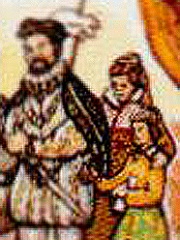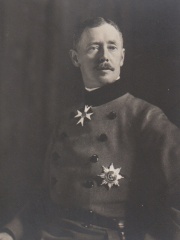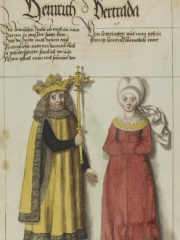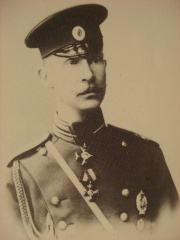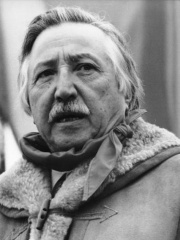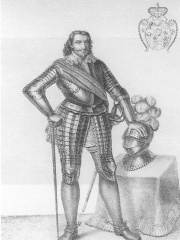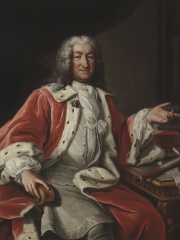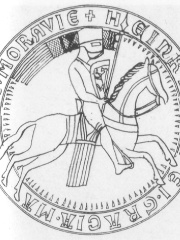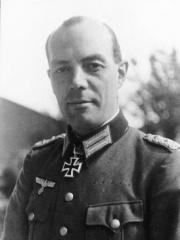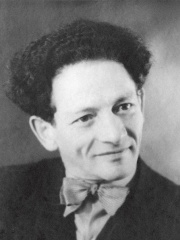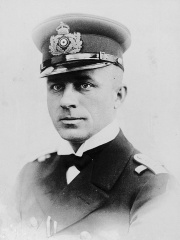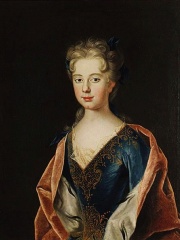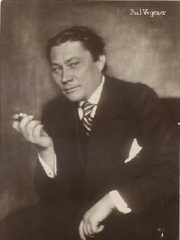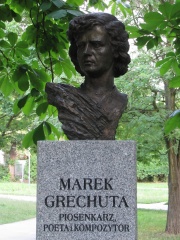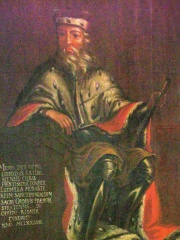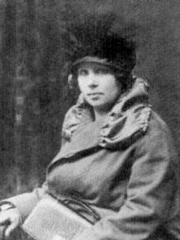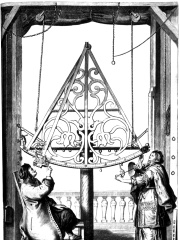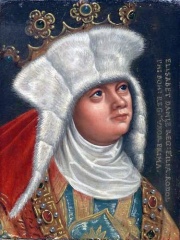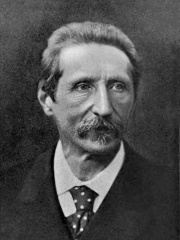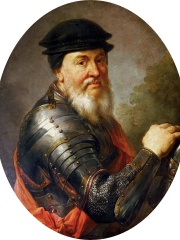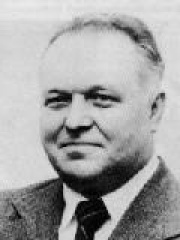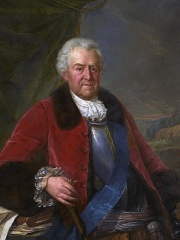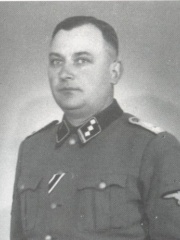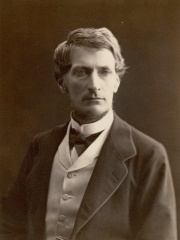Politician
Krakus
EN.WIKIPEDIA PAGE VIEWS (PV)
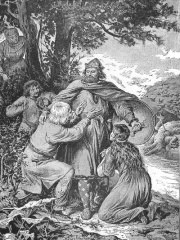
 Krakus
Krakus
His biography is available in 23 different languages on Wikipedia (up from 22 in 2024). Krakus is the 8,826th most popular politician (down from 7,442nd in 2024), the 508th most popular biography from Poland (down from 437th in 2019) and the 133rd most popular Polish Politician.
Memorability Metrics
Page views of Krakus by language
Among Politicians
Among politicians, Krakus ranks 8,826 out of 19,576. Before him are Honoré I, Lord of Monaco, Lindsey Graham, Friedrich Ferdinand, Duke of Schleswig-Holstein, Mustafa Akıncı, Matteo Renzi, and Gisela of Burgundy. After him are Grand Duke Dmitry Konstantinovich of Russia, Peter Högl, Luis Corvalán, Frederick V, Margrave of Baden-Durlach, Arvid Horn, and Vladislaus III, Duke of Bohemia.
Most Popular Politicians in Wikipedia
Go to all RankingsHonoré I, Lord of Monaco
1522 - 1581
HPI: 62.43
Rank: 8,824
Lindsey Graham
1955 - Present
HPI: 62.43
Rank: 8,825
Friedrich Ferdinand, Duke of Schleswig-Holstein
1855 - 1934
HPI: 62.43
Rank: 8,826
Mustafa Akıncı
1947 - Present
HPI: 62.43
Rank: 8,827
Matteo Renzi
1975 - Present
HPI: 62.43
Rank: 8,828
Gisela of Burgundy
950 - 1006
HPI: 62.43
Rank: 8,829
Krakus
HPI: 62.43
Rank: 8,830
Grand Duke Dmitry Konstantinovich of Russia
1860 - 1919
HPI: 62.42
Rank: 8,831
Peter Högl
1897 - 1945
HPI: 62.42
Rank: 8,832
Luis Corvalán
1916 - 2010
HPI: 62.42
Rank: 8,833
Frederick V, Margrave of Baden-Durlach
1594 - 1659
HPI: 62.42
Rank: 8,834
Arvid Horn
1664 - 1742
HPI: 62.42
Rank: 8,835
Vladislaus III, Duke of Bohemia
1160 - 1222
HPI: 62.42
Rank: 8,836
In Poland
Among people born in Poland, Krakus ranks 508 out of NaN. Before him are Rudolf Christoph Freiherr von Gersdorff (1905), Wolf Messing (1899), Lothar von Arnauld de la Perière (1886), Anna Leszczyńska (1699), Włodzimierz Smolarek (1957), and Paul Wegener (1874). After him are Robert Kubica (1984), Jerzy Hoffman (1932), Marek Grechuta (1945), Mieszko I Tanglefoot (1132), Stanisława Leszczyńska (1896), and Wilhelm Gliese (1915).
Others born in Poland
Go to all RankingsRudolf Christoph Freiherr von Gersdorff
MILITARY PERSONNEL
1905 - 1980
HPI: 62.50
Rank: 502
Wolf Messing
RELIGIOUS FIGURE
1899 - 1974
HPI: 62.50
Rank: 503
Lothar von Arnauld de la Perière
MILITARY PERSONNEL
1886 - 1941
HPI: 62.49
Rank: 504
Anna Leszczyńska
POLITICIAN
1699 - 1717
HPI: 62.49
Rank: 505
Włodzimierz Smolarek
SOCCER PLAYER
1957 - 2012
HPI: 62.47
Rank: 506
Paul Wegener
ACTOR
1874 - 1948
HPI: 62.45
Rank: 507
Krakus
POLITICIAN
HPI: 62.43
Rank: 508
Robert Kubica
RACING DRIVER
1984 - Present
HPI: 62.42
Rank: 509
Jerzy Hoffman
FILM DIRECTOR
1932 - Present
HPI: 62.40
Rank: 510
Marek Grechuta
SINGER
1945 - 2006
HPI: 62.39
Rank: 511
Mieszko I Tanglefoot
POLITICIAN
1132 - 1211
HPI: 62.35
Rank: 512
Stanisława Leszczyńska
RELIGIOUS FIGURE
1896 - 1974
HPI: 62.33
Rank: 513
Wilhelm Gliese
ASTRONOMER
1915 - 1993
HPI: 62.33
Rank: 514
Among Politicians In Poland
Among politicians born in Poland, Krakus ranks 133. Before him are Elisabeth Hevelius (1647), Elizabeth Richeza of Poland (1286), Eduard Strasburger (1844), Jan Tarnowski (1488), Frederick Augustus, Prince of Anhalt-Zerbst (1734), and Anna Leszczyńska (1699). After him are Mieszko I Tanglefoot (1132), Stanisław Kania (1927), Stanisław Poniatowski (1676), Richard Thomalla (1903), Beata Szydło (1963), and Alfred Józef Potocki (1817).
Elisabeth Hevelius
1647 - 1693
HPI: 62.62
Rank: 127
Elizabeth Richeza of Poland
1286 - 1335
HPI: 62.59
Rank: 128
Eduard Strasburger
1844 - 1912
HPI: 62.55
Rank: 129
Jan Tarnowski
1488 - 1561
HPI: 62.53
Rank: 130
Frederick Augustus, Prince of Anhalt-Zerbst
1734 - 1793
HPI: 62.50
Rank: 131
Anna Leszczyńska
1699 - 1717
HPI: 62.49
Rank: 132
Krakus
HPI: 62.43
Rank: 133
Mieszko I Tanglefoot
1132 - 1211
HPI: 62.35
Rank: 134
Stanisław Kania
1927 - 2020
HPI: 62.23
Rank: 135
Stanisław Poniatowski
1676 - 1762
HPI: 62.15
Rank: 136
Richard Thomalla
1903 - 1945
HPI: 62.12
Rank: 137
Beata Szydło
1963 - Present
HPI: 62.10
Rank: 138
Alfred Józef Potocki
1817 - 1889
HPI: 62.09
Rank: 139
